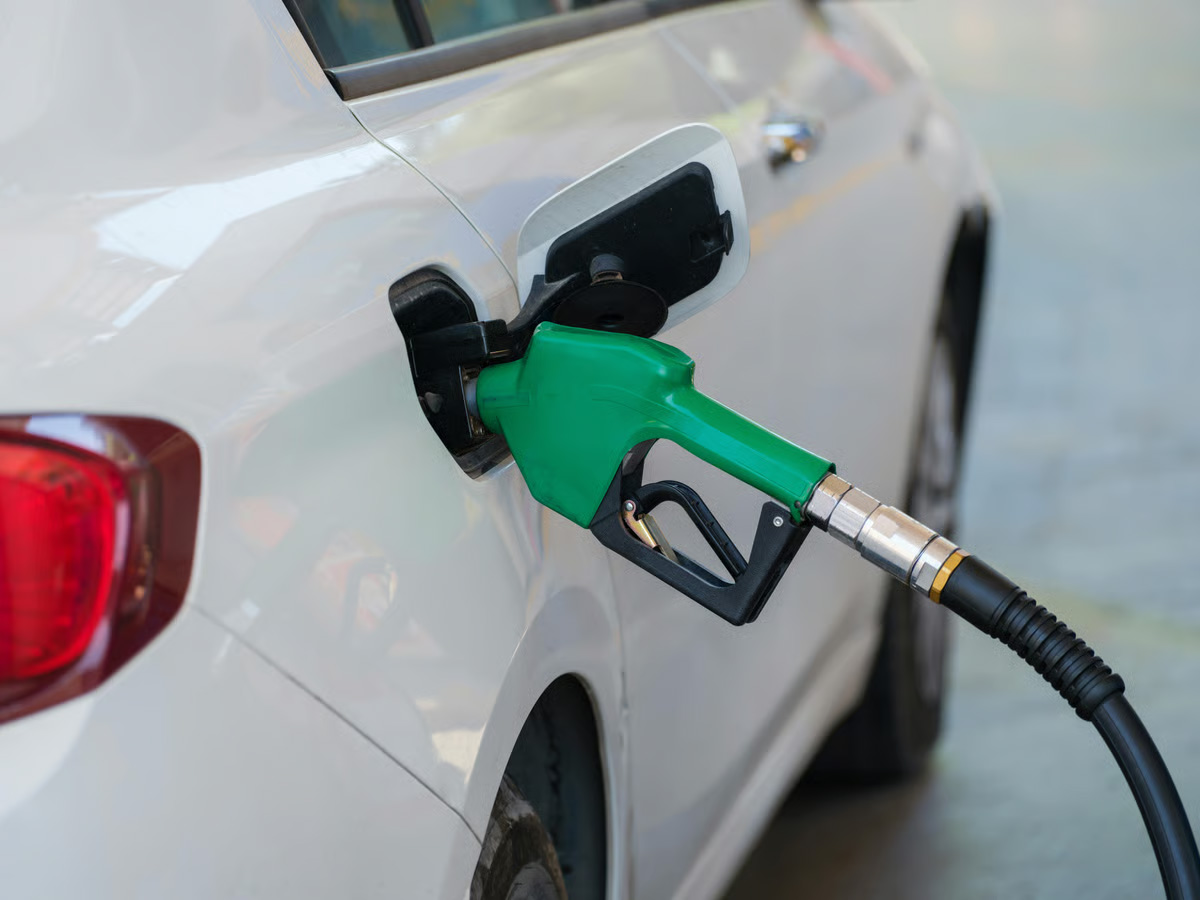
Choosing a car used to be quite simple, you either drove a petrol or a diesel. Vehicles today are powered by a number of different fuel sources, with the most common still being petrol and diesel, followed by electric. There are even other alternative fuel sources too, such as hydrogen, although these are quite rare, and lack the infrastructure for mainstream use just yet. Beyond that, there are also combinations of fuel as well, with hybrid vehicles offering a mix of benefits to drivers, depending on the hybrid set up they choose.
At first glance, it might seem like there's not really much difference with different fuel types, but they have their advantages for different situations. There's no universal 'Best' option, it all depends on what you need out of a car.
The classic, all-rounder fuel. Petrol engines are used in internal combustion engines (ICE) and is the most common fuel type you will see on the roads. Petrol has lots of great advantages over other fuel types, such as the lower cost per litre compared to diesel. Petrol engines are also usually cheaper to repair than their diesel or electric counterparts too, although emissions are usually higher than diesel vehicles, unless it's an older diesel. Petrol is great for everyday driving where you'll be doing short, medium, and sometimes longer trips.
Petrol vehicles are best for those that:
If you're opting for a petrol vehicle, here are some things to keep in mind:
Diesel is the other side of the coin when it comes to liquid fuels. You might just be thinking "Well, I fill up the same way, it smells just as weird, but it costs more to fill my tank." and you'd be right. However, diesel offers it's own advantages above other fuel types. Whilst the initial cost of a diesel vehicle as well as the fuel per litre may be higher, diesels often offer better fuel economy. It might cost more to fill up a diesel vehicle compared to a petrol one, but the diesel fuel will give you better range, especially on longer journeys at constant speeds. This means less time (and money) spent at fuel stations.
A slight caveat for diesels, is that they shouldn't be used solely for short trips, long trips are essential to keeping a diesel vehicle in best condition. The why can be a little technical, but I'll explain it below.
Diesel vehicles, especially those within the last 20 years, have something called a DPF (Diesel Particulate Filter). This filter helps to reduce a diesel vehicles emissions by physically trapping soot from the exhaust in a filter, which is then burned off to ash during a process called 'regeneration'. Regeneration can only happen when the temperature in the exhaust reaches around 600°C, this then prevents the DPF from clogging up.
This temperature is usually reached through normal motorway driving, at speeds of 40mph and above (Passive Regeneration), if your vehicle doesn't drive at that speed for a moderate amount of time, the DPF cannot regenerate, which will lower the performance of your vehicle, as well as potentially harming it, causing costly repairs in the future. Some diesel vehicles have something called 'Active Regeneration', which is an automatic process that the vehicle's computer initiates to burn off soot from the DPF. To do this, it injects extra fuel into the exhaust to increase the temperature to around 600°C and burn off the soot particles.
Diesel vehicles are best for those that:
If you're opting for a diesel vehicle, here are some things to keep in mind:
Whilst EVs may seem like a much newer thing than ICEs, they were actually invented first. Their practicality was far lower than their petrol/diesel counterparts, which is why they didn't see widespread adoption until the late 2000s. EVs are powered by an electric motor and a large battery pack, and produce no tailpipe emissions.
EVs have a lot of great advantages over ICE vehicles, but also offer some distinct disadvantages as well. Beyond that, the methods for charging an EV are vastly different as well, so some slight lifestyle changes are needed when considering an EV. Typically, EVs are much cheaper to run, although they have much less range. Charging infrastructure has seen rapid development over the last 10 years, with more (and faster) charging points being installed all the time. Although public charging is currently relatively expensive, home charging on specific tariffs makes it extremely cost effective to refuel compared to petrol or diesel vehicles. Electric vehicles are also much more environmentally friendly, although there are some myths about EVs that try to say otherwise.
Electric vehicles are best for those that:
If you're opting for an EV, here are some things to keep in mind:
Hybrids are a bit of an odd one out here, it can be complex to talk about because there are a few different types of hybrid vehicles, and they all work in different ways. I'll quickly go over the 4 most common types of hybrid vehicles you may find.
This is the most basic type of hybrid vehicle. The electric motor cannot power the vehicle on it's own, instead, it assists the ICE during acceleration and start-stop situations, which has a noticeable impact on fuel economy and reduces emissions. The battery for this electric motor charges itself using energy recovered from braking (Regenerative Braking), as well as from the engine. This battery doesn't require plugging in, and the vehicle can be used exactly the same as a regular ICE vehicle. Whilst they are more efficient and produce less emissions, they also have higher repair costs.
These hybrids work similarly to MHEVs, except the vehicle can be driven by the electric motor alone, the petrol/diesel engine alone, or a combination of the two. The computer inside the vehicle will automatically switch power sources depending on the drive to maximise efficiency. Usually, short distances and low speeds rely on the electric motor. As with MHEVs, the battery is self-charging from regenerative braking and the engine, so there's no ability to plug in and charge. Whilst they may seem similar to MHEVs, they offer much better fuel economy.
This is where things get a little more substantial. PHEVs combine an internal combustion engine with a larger battery and more powerful electric motor than other hybrid set ups. They can drive for a significant distance purely on the electric motor, usually between 20-90 miles. Once the electric charge runs low, the petrol/diesel engine takes over. Unlike other hybrids, these require plugging in to recharge the battery, as regenerative braking will not give a substantial charge. This allows the vehicle to run mostly on electric for daily commuting, leaving longer journeys to the petrol/diesel engine. These offer the best fuel economy of all hybrids, but without plugging in, the vehicle will act as a pure petrol/diesel vehicle, without the hybrid benefits.
This might also be called "Series PHEV" These hybrids are very different, and almost counter-intuitive to the general idea of a hybrid, which is to reduce emissions. REEVs (or SPHEVs) are, in essence, an electric vehicle that has a petrol/diesel generator. This generator's only role is to recharge the battery when it runs low, extending the driving range, although the generator never directly powers the wheels. This set up could be beneficial to some, as EVs do typically have lower ranges than their ICE counterparts. As with all hybrids, since there are more systems involved, the repair costs could potentially be higher.
This is a question that only you can answer, and it ultimately depends on what you want out of a vehicle and how you're likely to use it. If you're someone that won't ever take a journey longer than 15 miles, then it's probably not a good idea to get a diesel. On the other hand, if you're someone that needs to drive across the country quite frequently, then perhaps an EV isn't the best choice for you.
No matter what fuel type is best for you, we've got more vehicles than you can shake a stick at. We've got petrols, diesels, EVs, and plenty of Hybrids to choose from, no matter if you're renting, leasing, or subscribing your car, do it in the way that works best for you!
At AMT Auto, we redefine convenience with vehicle solutions designed for both businesses and individuals.
No matter the vehicle or the duration, we’ve got you covered with our exceptional services.
Discover flexible car leasing, car rental, used cars to buy, or subscribe to a car or van with us—you can even sell your current car for the best price. For businesses needing consultancy on fleet management or a partner to supply vehicles to customers, we’ve got it all under one roof.





